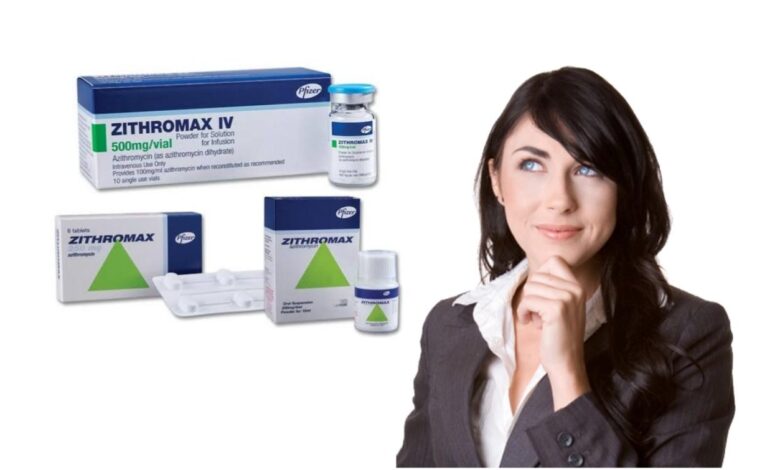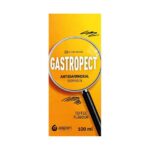What Not To Take With Azithromycin

Azithromycin is an antibiotic available as a generic drug as well as the brand-name drug Zithromax. Azithromycin works by stopping bacteria from multiplying (making more bacteria). This action kills the bacteria and treats your infection.
Azithromycin is used to treat certain bacterial infections, such as bronchitis; pneumonia; sexually transmitted diseases (STD); and infections of the ears, lungs, sinuses, skin, throat, and reproductive organs.
Azithromycin also is used to treat or prevent disseminated Mycobacterium avium complex (MAC) infection [a type of lung infection that often affects people with human immunodeficiency virus (HIV)]. Azithromycin is in a class of medications called macrolide antibiotics. It works by stopping the growth of bacteria.
Antibiotics such as azithromycin will not work for colds, flu, or other viral infections. Using antibiotics when they are not needed increases your risk of getting an infection later that resists antibiotic treatment.
How should this medicine be used?
Azithromycin comes as a tablet, an extended-release (long-acting) suspension (liquid), and a suspension (liquid) to take by mouth. The tablets and suspension (Zithromax) are usually taken with or without food once a day for 1–5 days. When used for the prevention of disseminated MAC infection, azithromycin tablets are usually taken with or without food once weekly. The extended-release suspension (Zmax) is usually taken on an empty stomach (at least 1 hour before or 2 hours after a meal) as a one-time dose. To help you remember to take azithromycin, take it around the same time every day. Follow the directions on your prescription label carefully, and ask your doctor or pharmacist to explain any part you do not understand. Take azithromycin exactly as directed. Do not take more or less of it or take it more often than prescribed by your doctor.
Shake the liquid well before each use to mix the medication evenly. Use a dosing spoon, oral syringe, or measuring cup to measure the correct amount of medication. Rinse the measuring device with water after taking the full dose of medication.
If you receive azithromycin powder for suspension (Zithromax) in the single-dose, 1-gram packet, you must first mix it with water before you take the medication. Mix the contents of the 1-gram packet with 1/4 cup (60 mL) of water in a glass and consume the entire contents immediately. Add an additional 1/4 cup (60 mL) of water to the same glass, mix, and consume the entire contents to ensure that you receive the entire dose.
If you receive azithromycin extended-release suspension (Zmax) as a dry powder, you must first add water to the bottle before you take the medication. Open the bottle by pressing down on the cap and twisting. Measure 1/4 cup (60 mL) of water, and add to the bottle. Close the bottle tightly, and shake well to mix. Use the azithromycin extended-release suspension within 12 hours of receiving it from the pharmacy or after adding water to the powder.
If you vomit within an hour after taking azithromycin, call your doctor right away. Your doctor will tell you if you need to take another dose. Do not take another dose unless your doctor tells you to do so.
You should begin to feel better during the first few days of treatment with azithromycin. If your symptoms do not improve or get worse, call your doctor.
Take azithromycin until you finish the prescription, even if you feel better. Do not stop taking azithromycin unless you experience severe side effects. If you stop taking azithromycin too soon or skip doses, your infection may not be completely treated and the bacteria may become resistant to antibiotics.
What is a drug interaction?
A drug interaction can be defined as an interaction between a drug and another substance that prevents the drug from performing as expected. This definition applies to interactions of drugs with other drugs (drug-drug interactions), as well as drugs with food (drug-food interactions) and other substances.
Whenever two or more drugs are being taken, there is a chance that there will be an interaction among the drugs. The interaction may increase or decrease the effectiveness of the drugs or the side effects of the drugs. The likelihood of drug interactions increases as the number of drugs being taken increases. Therefore, people who take several drugs are at the greatest risk for interactions. Drug interactions contribute to the cost of healthcare because of the costs of medical care that are required to treat problems caused by changes in effectiveness or side effects. Interactions also can lead to psychological suffering that can be avoided.
What Not To Take With Azithromycin
When taking Azithromycin, you should not take antacids that contain aluminum or magnesium within 2 hours before or after you take azithromycin, These include:
- Acid Gone
- Aldroxicon
- Alternagel
- Di-Gel
- Gaviscon
- Gelusil
- Genaton
- Maalox
- Maldroxal
- Milk of Magnesia
- Mintox
- Mylagen
- Mylanta
- Pepcid Complete
- Rolaids
- Rulox
These antacids can make azithromycin less effective when taken at the same time. In addition to these antacids, several other drugs can also interact with azithromycin and make it less effective when used together, they include:
- Digoxin
- Clarithromycin
- Blood thinners (warfarin, Coumadin, Jantoven)
This list is not complete. Other drugs may interact with azithromycin, including prescription and over-the-counter medicines, vitamins, and herbal products. Not all possible interactions are listed in this medication guide. But studies have shown that azithromycin has a low potential for significant drug interactions.





